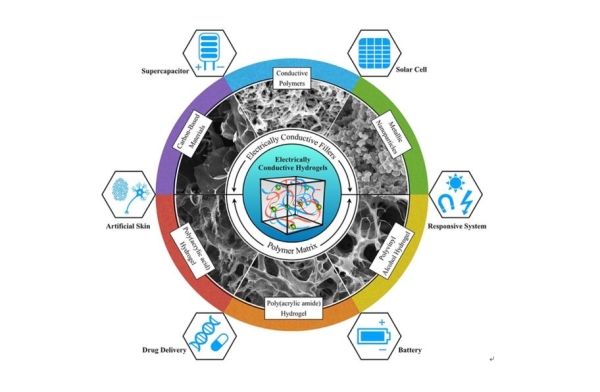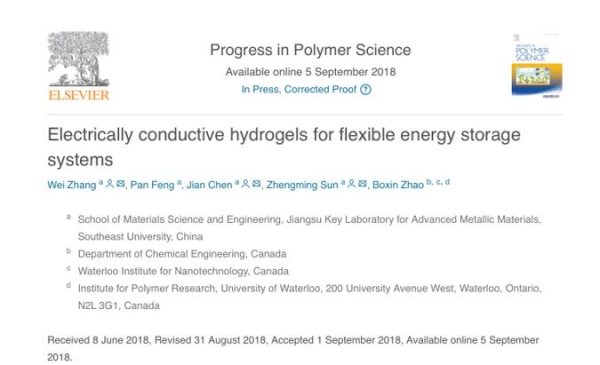

Associate Professor Zhang Wei (co-corresponding author), Dr. Feng Pan, Professor Chen Jian (co-corresponding author), Professor Sun Zhengming (co-corresponding author) and Professor Zhao Boxin from the University of Waterloo, Canada, published an overview thesis titled Electrically conductive hydrogels for flexible energy storage systems on Progress in Polymer Science”. In the thesis, the School of Materials Science and Engineering of Southeast University was indicated as the only communication unit. “Progress in Polymer Science”, as a journal that mainly introduces the frontiers and hotspots of researches on polymer in the world, only publishes 43 review articles annually. In 2017, the journal was deemed as one of the most influential academic journals in the polymer field for its impact factor of 24.558.
In recent years, flexible electronic products such as wearable devices, software robots and foldable displays, etc. have received extensive attentions, therefore, the development of compatible flexible energy storage devices has become a research hotspot in the current academic and industrial fields. As the electrically conducive hydrogel combines the electrochemical properties of electrically conducive polymers and the softness of hydrogels, it highlights a large specific surface area, excellent electron and ion transmission capabilities; therefore, it is deemed as an ideal material for constructing flexible electrodes. This review discusses the synthesis and functionalization strategies of nanostructured electrically conducive hydrogels and their unique physical and chemical properties. Based on the polymer hydrogel network and the variety of electrically conducive filler, the electrically conducive hydrogels are mainly synthesized by crosslinking polymer chains or monomers to construct a three-dimensional nanostructured polymer chain network. Besides, the review further introduces the percolation theory applicable to electrically conducive hydrogel materials and systematically combs the latest research progress of nanostructured functionalized hydrogels in energy storage (lithium-ion batteries and supercapacitors) from the perspective of structuralization and functionalization of electrically conducive gel materials.